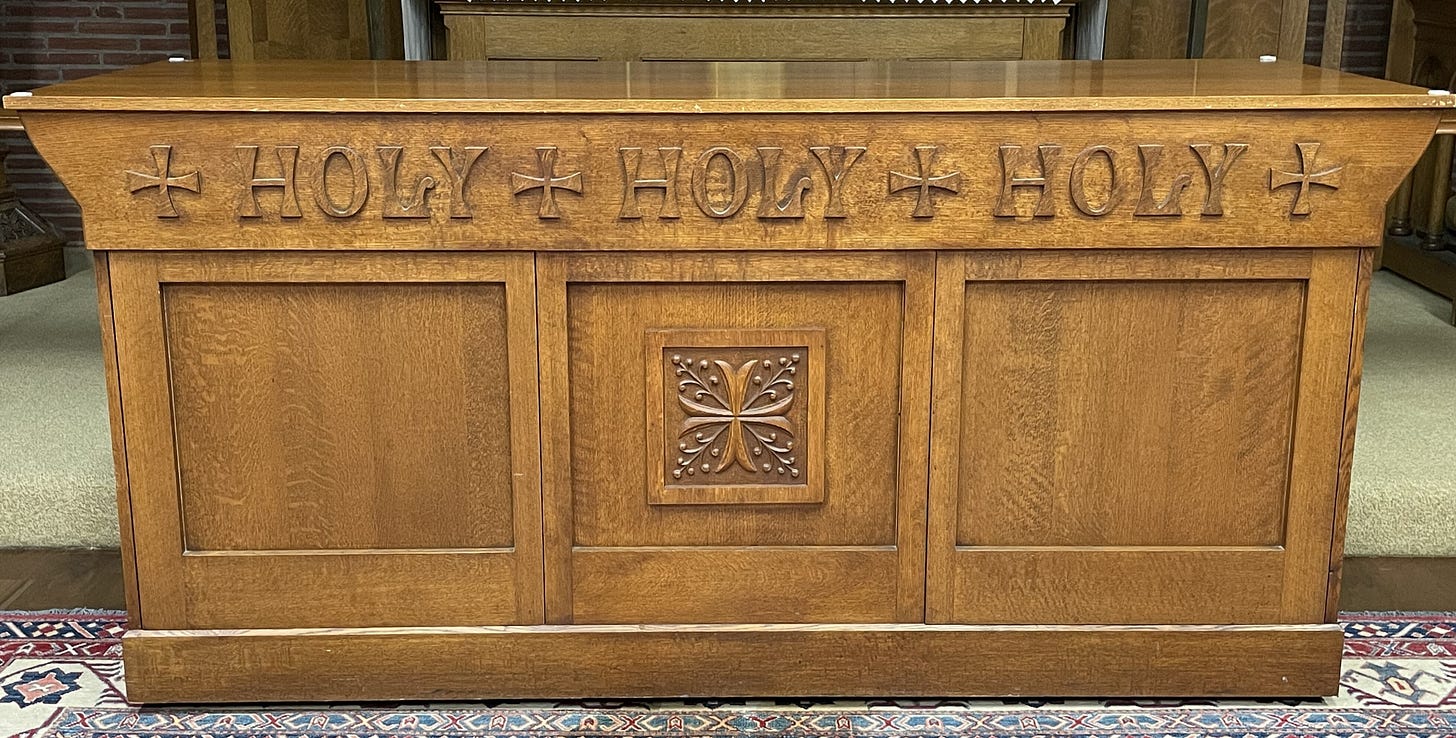Check in
Companions
Is it orange-ness that brings these two objects together? They seem compatible.
What is worth knowing?
Some general knowledge comes in handy. Like Roman numerals. Do they still teach those in school? Hint: 2,000 is MM. 2025 is MMXXV. Sunday’s crossword in The New York Times on February 2, 2025, has a Roman numeral answer. It’s 30-across.
Here are some other things that are useful to know:
How to make change. Few cashiers seem to know; they rely on the amount the electronic till tells them.
There are 3 teaspoons in a tablespoon, not 2
The first three digits of π are 3.14 (Pi Day is March 14)
Women’s shirts button opposite of men’s. Same for zippered flies.
And some “how to’s” to know how to:
How to drive a stick shift
How to sift flour
How to flip an egg without breaking the yolk
How to survive the graveyard shift
How to cast on, if you ever hope to knit
How to avoid buying stuff from Amazon (yes, it’s easy to order, but Amazon is a predatory business that doesn’t treat its suppliers or employees well)*
How to sew on a button
How to pick up dog poop
How to unsubscribe (it’s that little link you can barely see at the end of a post or email)
How to get lipstick stains off the collar of your shirt
*Read here about how I once blew off Jeff Bezos as he was launching Amazon.
More collar lore
Also good to know is how to turn a collar. If the edges of a collar have frayed you can take it off, turn it around, and sew it back in. It’s easier than you think.
Recently, I decided to take a collar off entirely, leaving only the collarband.

Triad
Another three words to pick apart:
Do
Due
Dew
Do
Do is an action-packed verb. A reminder of what our day holds. We do lunch, we do laundry, we do math. After much doing and some doodling, the day is done. We sleep, we arise, we do all over again.
Follow the S’s in this hoary old joke:
Socrates: To do is to be Sartre: To be is to do Sinatra: Do be do be do.
Due
Due can be a word of anticipation (the baby) or anxiety (the bill). It’s forward-looking in any case. Propellant.
Due to the time constraints of writing this essay, my word account is overdue, and I’m moving on to dew.
Dew
Dew is the moisture of the morning, the delivery vehicle of biblical manna. It’s also a term for anything slightly wet or fresh, like your dewy complexion or the dew of your tears.
The moisture of the morning in these winter days is frost rather than dew. Other terms for frost are hoar and rime.
Rime is also an archaic spelling of rhyme, as in “The Rime of the Ancient Mariner.”
Rime rhyme
The frost is on the banana That’s why it is so brown. Have your beer tomorrow At the Dew Drop Inn in town. Wet your morning sandals With moisture from the lawn. When out to walk Spot early Before the sun has shone.* *That last rhyme supposes “shone” is pronounced “shawn,” as it is in audiobooks read by Brits. I like that pronunciation.
More due
And here’s a poem with the word “due” in it
February lament
I’m behind Before I begin, The 8-ball is looming, My taxes are due. I’m frozen in place A grin on my face Stuck far behind The starting line. Jump into action! Get off my duff! Crank the ignition Find some initiative— It’s only February That’s my excuse Too soon for taxes. Let’s go back to bed.
Just one more point about dew: Always in the back of my mind is hearing it as “dyew.” Some Shakespearean actor, maybe Nicole Williamson, pronounced it that way in one of Hamlet’s soliloquies: “O, that this too too solid flesh would melt/ Thaw and resolve itself into a dyew!”
Or, as Ol’ Blue Eyes might sing: Dyew be dyew be dyew.
Memories
Scent memory
Moving along a winter sidewalk, I am assailed by a strong, sweet fragrance. Daphne! Daphne odora, the scent of February. Spring is close behind when you start smelling daphne. There’s nothing else like it.
I went back a few days later to find the shrub and photograph it, but alas, the weather had turned. The bright sunlight that had awakened the scent a few days before had vanished, and the daphne’s scent had gone back underground. Then, a few days later when I was downtown, I smelled daphne again. Several large bushes on the grounds of the Gus J. Solomon United States Courthouse were scenting the air. I sneaked my camera through the railings to nail the shot.
But this plant is not daphne, an alert reader has told me in the notes. It’s sarcococca, sweet box, a plant I didn’t know. Thanks, Pat, for setting me straight.
Light memory
The bright light of these January days inspires a clear memory of exploring Sioux Falls during my early teen years. I remember one particular walk, on Christmas Day. The quality of light on that day has never left me. I encountered similar light in mid- January in Portland and in mid-December, too. That the days I experienced similar light fell before and after Christmas is because Portland, Ore., is slightly north of Sioux Falls, and the light would be that intensity about 10 or 12 days removed.
I have another clear memory, of bright mid-California light, on a visit to Berkeley after I had been living in Portland for many years. The sun flowed like butter into a friend’s apartment. This was in the 90s. I mentioned this memory to my daughter Maggie, who was just a kid then, and she remembers the light on that day, too, so many years ago. It was that special.
Color memory
Color is so integral to the way I see the world. One recent day, I saw blue everywhere.
I’ve been collecting photos of trash bins. Many of them are blue.
Sometimes saturated colors remind me of kindergarten and the intensely pigmented poster paints we used. Trash-can blue is one of those remembrances.




More on Mel
When I wrote about Mel Robbins last week—she’s the woman who eschewed comfort in her youth but embraces it in middle age—I totally missed that she has created a best-selling book.
The book is The Let Them Theory, and it sprang from a little 2023 Instagram video she recorded that’s garnered millions of views.
Briefly, the theory is that you can control yourself, but you can’t control any other person. If they ignore you, dis you, anger you or disappoint you, you can keep your distance and sanity by intoning the phrase “let them.” Just let them engage in whatever behavior it is you’d love to change but can’t.
You come out on top
The “let them” theory doesn’t fix other people, but it does fix you. It frees you to live your life free of any commitment to influence others.
I am Mel’s secret groupie. Like all things Mel, including her inspirational podcasts, I recommend this book. The audiobook, which she narrates, is a fun listen.
She always introduces herself as “It’s your friend, Mel!” I used to let that irritate me. She’s not my friend; she’s using her podcast to sell product.
But now I can just “let her.” Let her say she’s my friend. She’s going to do that no matter what. And maybe, at some level, she is.
Checkout
Passage
St. Stephen’s, the Episcopal church in downtown Portland where my daughter Maggie was married in 2012, held its last service on Sunday, January 26.
The church’s webpage outlines its proud history:
St. Stephen’s Episcopal Parish has proudly served downtown Portland since 1863. Since opening this location on SW13th & Clay 130 years ago, St. Stephen’s served as the Bishop’s Cathedral from 1892 to 1973, and as a beacon of progress for marginalized communities in Portland. St. Stephen’s was the first Episcopal Church to welcome African American members in the 1920s, a home to Japanese Americans returning home from internment in the 1940s, the first church in Portland to host a marriage ceremony for an interracial couple in the 1960s, the first Episcopal Church in Oregon to call a woman rector, a safe haven for LGBTQ+ community members during the AIDS crisis in the 1980s, and a home to organizations serving our unhoused neighbors downtown such as Clay Street Table and Operation Nightwatch.
The Episcopal Diocese of Oregon asked the church to shut down by February 1. The building is showing its age, and the congregation has dwindled. The Oregonian ran an obituary for the parish on December 23, 2024.
Operation Nightwatch, which has been serving the unhoused from the church since 1981, now owns the building.
St. Stephen’s historic altar has been donated to my local Episcopal church, St. David of Wales. It will replace a less fancy table.
A few decades ago, St. David’s congregation had also dwindled to the point where it almost closed, but there has been a turnaround in recent years. The congregation is now healthy enough and prosperous enough that it can afford a full-time rector. That’s the minister in charge.
The interim rector at St. David’s is the Rev. Dennis j. Sagun Parker. He earlier served eight years as rector at St. Stephen’s.
Cycle
Our being is a gift. All beings are a gift, Our great gift from the Universe. Creating, though, comes from within us Creating is how we give, It’s how we return what is— Giving back the gift we were given.
—30—
Parting words
Another Substack writer, Buku Sarkar, writes: “If you catch yourself not deleting my posts, I hope you’d consider subscribing. There is no better inspiration than to be championed by someone, and in doing so you’ll be encouraging independent journalism and censor-free writing.”
Yeah, what she said.
You can always subscribe for free, or go here to take advantage of my Diamond Birthday special. Through February, get 20 percent off the cost of a monthly or annual subscription. That’s $4 a month or $40 for a year.
Broke? On PayPal, you can tip me in $5 increments.









To you and all your followers who love words, I'm sharing the OED Word Of TheDay for Jan. 31, 2025: omniverbivorous
Having a large or inexhaustible appetite for words.
I love the smell of Daphne, which for me serves as a herald for the approaching Spring.